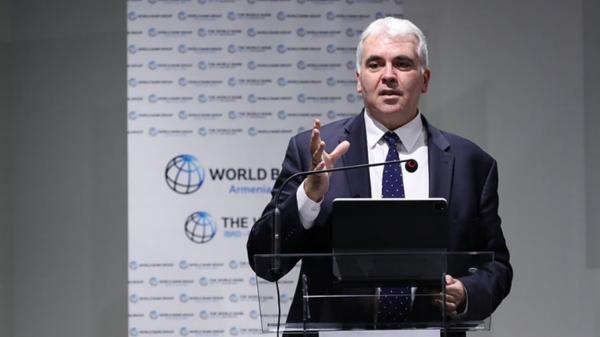10.03.2025
On March 17, the Faculty of Economics and Business Administration will host Ivaylo Izvorski, Chief Economist for Europe and Central Asia at the World Bank. He will present the recently published World Development Report 2024, The Middle-Income Trap.
The topic of his lecture "Greater Heights: Growing to High Income in Europe and Central Asia" will cover key issues such as productivity, human capital, energy, and emissions. The guest lecture will take place in Room 400 from 16:30 to 18:00, and all interested participants are welcome to attend.
Before assuming the role of Chief Economist at the World Bank in December 2022, Ivaylo Izvorski worked as a manager of economists for Europe and Central Asia and as head of the department for global macroeconomic policy, economic growth, and debt.
He is one of the co-authors of Diversified Development: Making the Most of Natural Resources in Eurasia and Greater Heights: Growing to High Income in Europe and Central Asia. Throughout his career, he has worked on economic development in Europe, Central Asia, East Asia, the Pacific, and Africa at the World Bank, the Institute of International Finance, and the IMF. He holds a Ph.D. in Economics from Yale University.
The Middle-Income Trap
Since 1990, 27 countries have achieved high-income status, ten of which are European Union member states from the Europe and Central Asia (ECA) region. Additionally, 20 other countries in the region have advanced significantly since the 1990s. However, their transition to high-income economies has slowed down, becoming even more challenging after the 2008 global financial crisis. This slowdown was partly due to delayed structural reforms and global economic challenges.
As a result, concerns have grown that many countries in the region may be trapped in the middle-income stage—a development phase marked by persistent economic stagnation and per capita incomes that remain below the high-income threshold.
To overcome this barrier and join the high-income club, policymakers must shift their focus from merely attracting investments to actively acquiring global technologies and knowledge—and eventually fostering domestic innovation.
Governments must continue fundamental economic reforms that support growth drivers while promoting the development of more sophisticated economic structures and institutions to strengthen market competition.
For countries like Bulgaria, which has already achieved high-income status, innovation-driven economic policies will be crucial for maintaining long-term growth.



